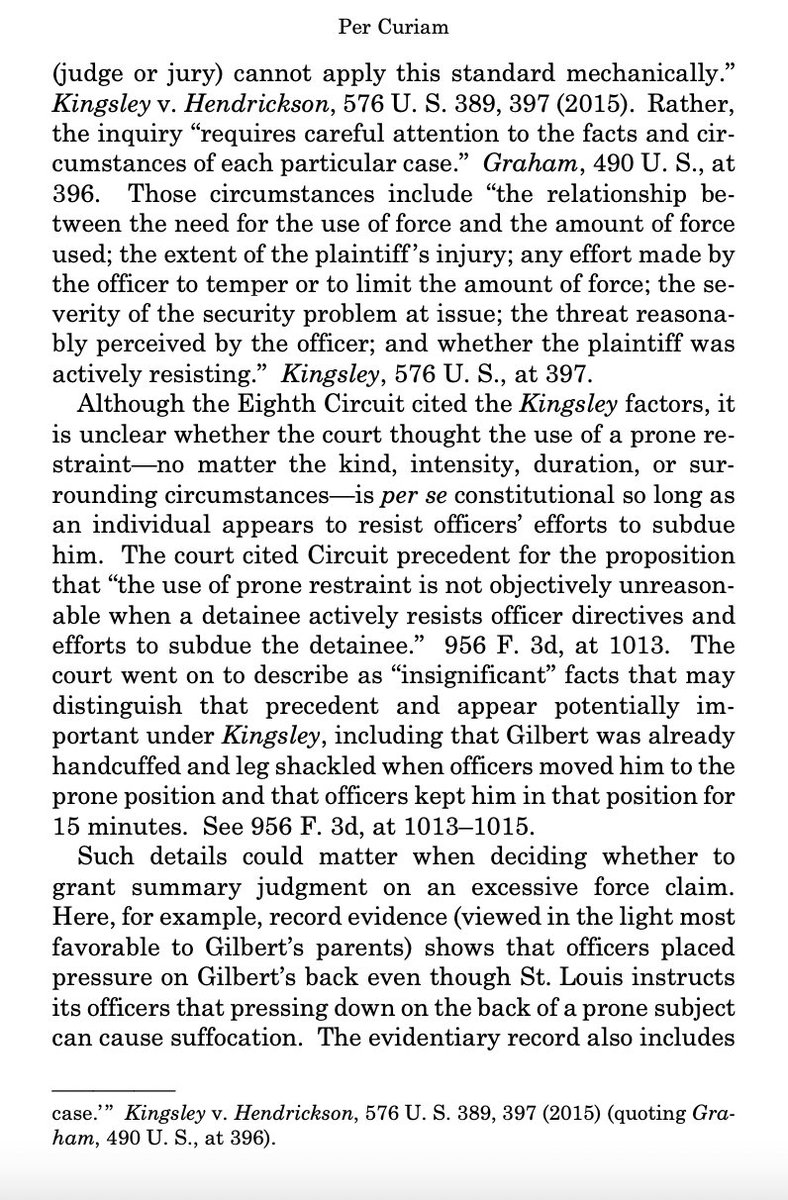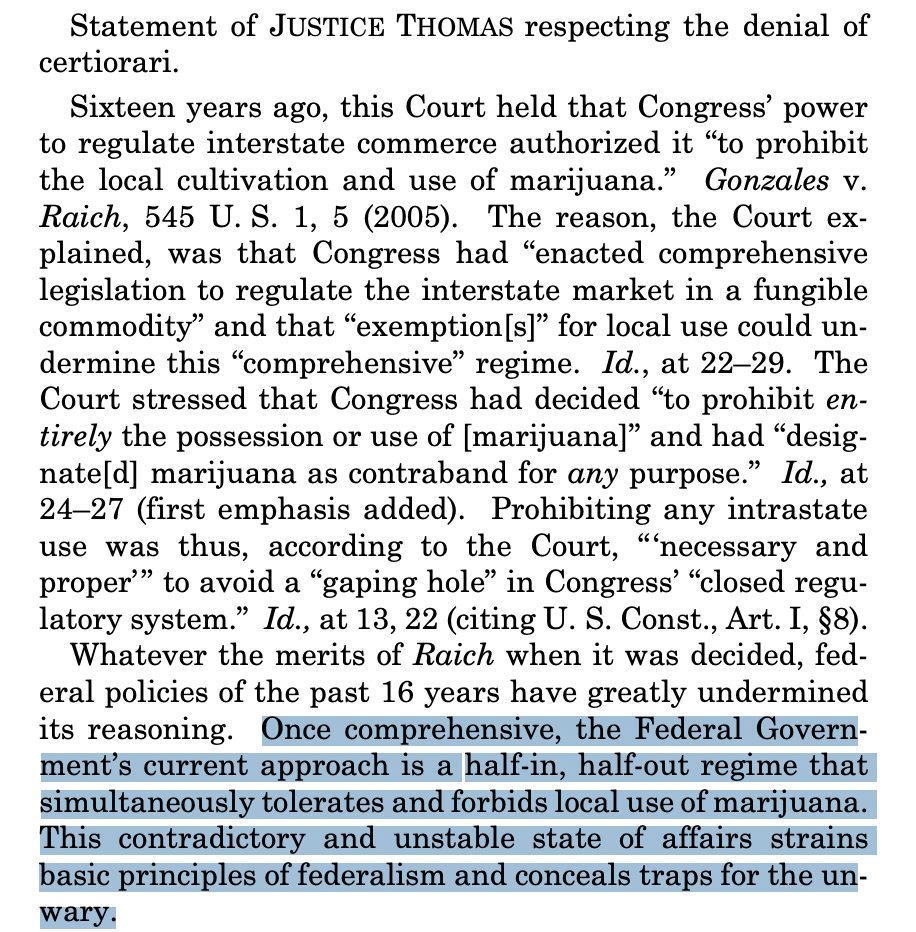The Supreme Court takes up two new cases involving free speech and immigration and issues two per curiam decisions. Full order list here: supremecourt.gov/orders/courtor…
SCOTUS' new cases are Austin v. Reagan National Advertising (another First Amendment case about sign regulations!) and Patel v. Garland (limited to question 1 below), which sounds like a @ReichlinMelnick case. The court will hear these cases next term.
supremecourt.gov/orders/courtor…
supremecourt.gov/orders/courtor…

Here's the big news: In what appears to be a 6–3 vote, the Supreme Court *reverses* an 8th Circuit decision that found officers used no excessive force when they killed someone using brutal tactics reminiscent of George Floyd's murder. supremecourt.gov/orders/courtor… 







Alito, joined by Thomas and Gorsuch, dissents, saying he would schedule the case for oral arguments rather than summarily reverse the 8th Circuit. supremecourt.gov/orders/courtor… 

SCOTUS also says administrative exhaustion of state remedies is not a prerequisite for a takings claim, reversing the 9th Circuit. No noted dissents. supremecourt.gov/orders/courtor… 

Clarence Thomas says the federal ban on marijuana is likely unconstitutional, faulting the government for maintaining a "contradictory and unstable state of affairs" that "strains basic principles of federalism and conceals traps for the unwary." supremecourt.gov/orders/courtor… 

Thomas' basic point is that when SCOTUS upheld the federal ban on marijuana in Raich, the federal government actually prohibited weed. Now the government lets states run robust marijuana markets, which undermines its constitutional authority to maintain its putative ban.
And finally, we have Justice Sotomayor dissenting from the denial of a petition raising a pretty serious Sixth Amendment claim. supremecourt.gov/orders/courtor… 

Sorry, I should've said "vacates" here, not "reverses." The 8th Circuit's decision is vacated. Mea culpa!
Gavin Grimm's case is over, and he won. The Supreme Court declined to review the 4th Circuit's decision in his favor. Only Alito and Thomas noted their dissents (meaning they would've taken the case).
supremecourt.gov/orders/courtor…
supremecourt.gov/orders/courtor…

• • •
Missing some Tweet in this thread? You can try to
force a refresh











